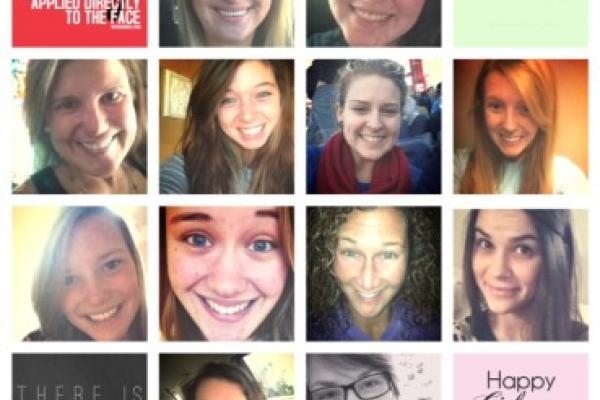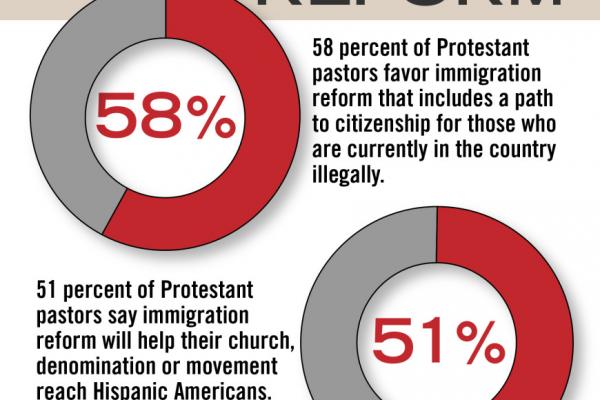In the age of the internet, we have access to a vast quantity of information beyond our dreams even twenty years ago. Most of the time, I use this power to look at LOLCats and Buzzfeed articles like "11 Signs You Might be Dating a Pirate."
But as a Christian who feels the weight of caring for the people Jesus called "the least of these," I feel a responsibility to be educated about the plight of the billions of people who live on less than $2 per day around the world (and here in the US, as recently evidenced by the cuts to food stamp programs).
Caring for the poor directly in our neighborhoods is essential to the mission of the local church, and universally, it is the Church’s responsibility to care for the poor in every corner of the planet.
As countless men grow mustaches this month to raise money and awareness for men's health issues, women and girls of all ages have put away their blush and mascara, seeking to remember they are beautifully made by God — even without the makeup.
"I think a lot of times we get so caught up in 'God made the world and the trees and the beauty and nature' and we see God's handiwork in the leaves changing in the fall, or we see his handiwork at the beach," said Becca Daniel, team leader at Rave Ministries.
"What we forget is we're told in all those other Scriptures that God made us, down to the last detail too."
Women and girls from 37 states and seven countries are participating in "No Makeup November," which is coordinated by Rave Ministries, a Christian girls ministry associated with the Churches of Christ.
At the end of a three-day tour, the Saudi-based Organization of Islamic Cooperation told Buddhist-majority Myanmar to repeal “laws restricting fundamental freedoms” after more than 240 Muslims were killed by Buddhist mobs during the past year.
Before the OIC delegates left Myanmar on Saturday, they visited minority ethnic Rohingya Muslims who fled the violence and are now living in squalid camps along the border with Bangladesh in Myanmar’s Arakan state, also known as Rakhine.
Headed by Secretary General Ekmeleddin Ihsanoglu, the OIC delegation called on the government to continue legal reforms, The New Light of Myanmar newspaper reported.
Macy's decided to open its doors to shoppers on Thanksgiving Day at 8:00 p.m. Time magazine reports that people are denouncing the move as “greedy, misguided, and unfair to the employees being forced to work on a day traditionally reserved for family.”So how is Thanksgiving doing? Is it deceased, or has its death been greatly exaggerated?
The apostle Paul must have wondered about this when he wrote his letter to the Colossians, a group of Christians living along a main roadway in Asia Minor — what is now modern Turkey. They were pulled between the values of their faith and the values of their culture, much as we are today. Paul warned them, “See to it that no one takes you captive through philosophy and empty deceit, according to human tradition, according to the elemental spirits of the universe, and not according to Christ” (Colossians 2:8).
These words ring true today, don’t they? We know the philosophy of trying to spend ourselves out of economic troubles. The empty deceit of a sales pitch. The human tradition of making the holidays an orgy of consumption. The elemental spirits of the universe that lure us away from Jesus Christ.
Paul asked the Colossians, and he asks us, “Why do you live as if you still belonged to the world?” (2:20). It’s a good question, one that we should ask ourselves on Thanksgiving Day, and every day.
A school assembly speaker is gaining national attention. In Richardson, Texas, a high school brought in “motivational speaker and dating expert” Justin Lookadoo to speak to the students about relationships and dating. Lookadoo traverses the country speaking to students about the ins and outs, the perils and pitfalls of dating. Lookadoo gives teens a definitive answer on their status in the realm of dating. His quiz parallels with his “Dateable Rules,” some of which are textbook gender stereotypes and Christian theological distortions.
To be honest, I think his “rules” are bogus. They come from a place where boys and girls are divided into classes and in the end boys win. Making girls out to be “damsels in distress” and boys are “heroic warriors looking for an adventure” doesn't equate a relationship.
Relationships are built upon respect and mutuality not antiquated thinking when it comes to gender roles.
The news that immigration reform may be dead—at least for this year—isn’t likely to sit well in many of America’s churches.
A new poll from Nashville-based LifeWay Research finds nearly six in 10 senior pastors of Protestant churches support immigration reform that includes a path to citizenship.
Many of those pastors hope reform will help them minister to more Hispanic Americans. But few say the current immigration system hurts current members of their flocks.
The poll of 1,007 senior pastors of Protestant churches, conducted Sept. 4-19, comes as immigration reform has stalled on Capitol Hill.
The highest-ranking Muslim in the British government on Friday called on Western governments to do more to protect besieged Christian minorities across the world, particularly in the Holy Land where they are now seen as “outsiders.”
Baroness Sayeeda Warsi, the government’s minister for faith and the first Muslim member of a British cabinet, said religious freedom is a proxy for human rights and must not be an “add-on” to foreign policy.
“A mass exodus is taking place, on a biblical scale,” she said in a speech at Georgetown University. “In some places, there is a real danger that Christianity will become extinct.”






